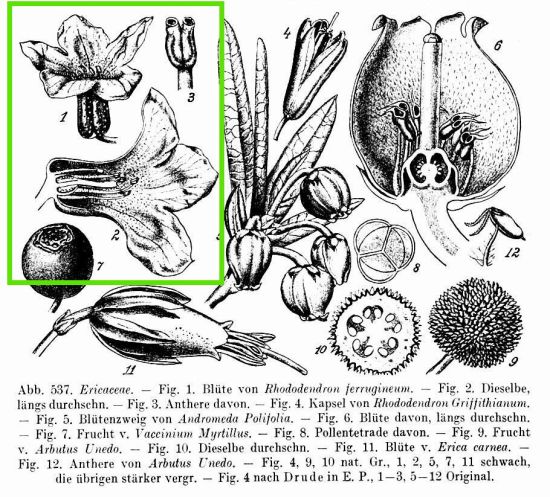ALPINE ROSE (Rhododendron ferrugineum L.)

Activities (Alpine Rose) — Astringent (1; HHB); Diuretic (f; HHB); Hypotensive (f; PH2);
HHB); Hypotensive (f; PH2);
Litholytic (f; HH2); Sedative (f; HHB).
Indications (Alpine Rose) — Arthrosis (f; PHR); Calculus (f; PHR; PH2); Gas (f; PH2); Gout (f;
HHB; PHR; PH2); High Blood Pressure (f; PHR; PH2); Hypertonia (f; PHR); Insomnia (f; HHB);
Migraine (f; PHR; PH2); Myalgia (f; PHR; PH2); Nervousness (f; HHB); Neuralgia (f; PHR; PH2);
Orchosis (f; PH2); Rheumatism (f; HHB; PHR; PH2); Senility (f; PH2); Stone (f; HHB; HH2);
Water Retention (f; HHB).
Dosages (Alpine Rose) — 5–6 g in infusion (HH2; PHR; PH2).
Contraindications, Interactions, and Side Effects (Alpine Rose) — Not covered (AHP).
Commission E reports for leaf, toxic diterpenes may be present and chronic use may lead to
hydroquinone poisoning (due to the presence of arbutin) (AEH; HH2). Signs of intoxication:
arrhythmia, bradycardia, cold sweats, cramps, diarrhea, dyspnea, hypotension, paresthesia,
poor coordination, salivation, stupor, finally leading to possible death through apnea or cardiac
failure (PH2). There are no reports of serious instances of poisoning of patients used to taking
it as an infusion in folk medicine (daily dose 5–6 g).



0 comments:
Post a Comment